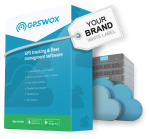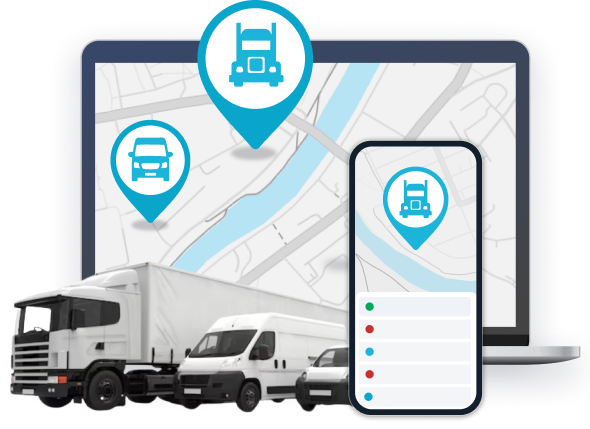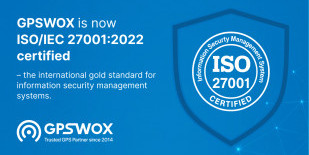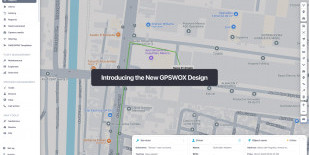
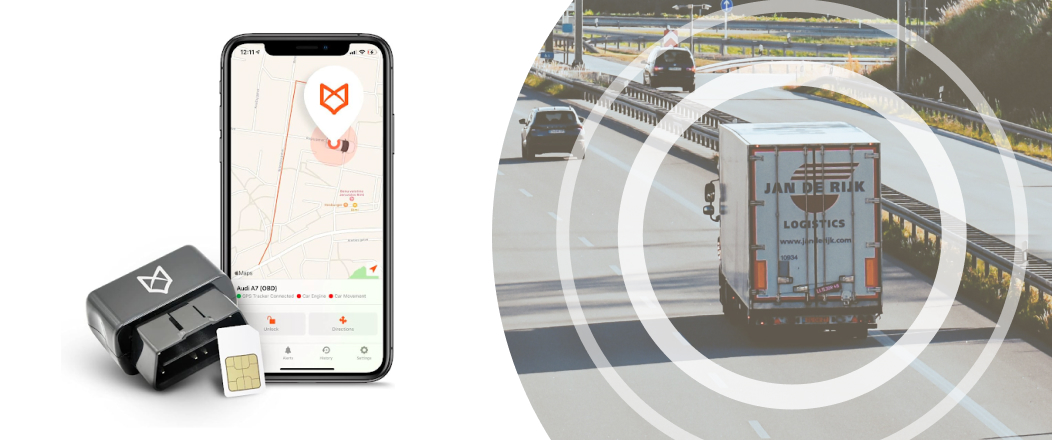
What Makes a Great GPS Vehicle Tracker?
In a world where everything is becoming interconnected, GPS systems provide the neural network for a large variety of daily operations, including shipping, deliveries, and vehicle management. Due to their wide-ranging potential, GPS trackers have been getting increasingly more popular for personal use too. No wonder - they make comfortable family tracking a breeze, while also serving double duty as accessible anti-theft measures. This boom is also reflected in the rapidly growing market size, which is estimated to reach $7.77 billion by 2032.
Advanced GPS units have the capabilities to make daily life significantly more convenient, whether you're operating a fleet business, or consider yourself a tech novice. However, each year trackers are becoming more feature-laden than before. Keeping up with the upgrades to make the perfect choice can get overwhelming, especially if you are not technologically inclined.
To make things easier, we have prepared an overview of what modern GPS tracking devices are capable of, how they apply in day-to-day scenarios, and what will make the best tracker for your needs. A better understanding of the functional possibilities will make picking suitable devices a lot more straightforward, ensuring your choice is going to perform excellently for years to come. So what should you be looking out for in a modern GPS locator?
Modern GPS Tracking Device Features
Location Tracking Frequency
Accurate location tracking is what defines the most important element of a GPS device, therefore it is a top priority to be considered. It should be noted that the frequency trackers update their location can differ vastly, so it is vital to keep in mind when picking a device. Generally, GPS units are classified into active, passive, and hybrid trackers. Each has its specific benefits and drawbacks that will be accentuated depending on your use case. The main differentiation factor is how often they update their location, as well as whether their data gets sent out or is only stored locally.
Active GPS Tracking
Active trackers send out location data to a centralized database where the information can be accessed through a software application. This occurs at a fairly high frequency, resulting in what is known as real-time GPS tracking. However, high-frequency data transmissions are classified in a fairly wide range - from around once per hour to numerous times a minute. Depending on your specific GPS tracking needs, this should be a point to consider as not all real-time tracking devices are built equal.
Active GPS devices must have a constant connection to a network via cellular data or a wireless internet connection. If there is no network connection at a given point, some trackers can store their accumulated data and transmit it once they are able to connect. Most active real-time trackers require a software subscription that allows them to be monitored, to set up customized alerts, and to avail of other smart functions like rerouting to avoid traffic jams. Such devices also require the most battery power of all GPS systems, with battery life ranging from a few days to a few weeks depending on their settings and location update frequency. On long excursions where there are no continuous charging options, a backup power source may come in handy. Depending on the device, a battery pack or power bank device will apply.

Active GPS tracking will best fit your needs if you are an individual or business that wishes to closely monitor their vehicles and assets with little margin for error. Fleet managers, tech enthusiasts, delivery trucks that must report estimated times to customers, construction businesses that frequently move equipment, and emergency assistance operations include examples where there shouldn’t be compromise when it comes to the quality of active tracking. Cost-wise, highly capable real-time trackers will be in the upper range.
Passive GPS Tracking
Passive GPS tracking, on the other hand, is a more affordable option. Such devices act as receivers, instead of data transmitters. Passive GPS trackers, also known as GPS data loggers, record their information and store it locally on a USB stick, memory card, or internal memory. The historical record of location data can later be extracted and examined. Due to their passive nature, the battery life on such tracking devices can be quite impressive, reaching up to around 10 months on a single charge. They tend to be compact, cost-effective and do not require a lot of setting up. Passive GPS trackers make a good option for people who are only required to confirm location logs. For example, managers who must determine whether a crew member visited his assigned job sites and maintained his route, joggers and mountaineers who wish to check traveled distances, and similar retrospective applications.
Hybrid GPS Tracking
Modern passive GPS devices have evolved to also incorporate partial active tracking abilities. However, they transmit data at a low frequency and are generally classified as hybrid units. Such solutions often have the ability to transmit data when a determined trigger happens. For example, upon leaving a predetermined boundary the hybrid device can report the occurrence. Such a function is especially helpful in theft recovery, where GPS notifications are only necessary in rare instances.
Hybrid trackers maintain a conservative battery usage, therefore making it a great solution for use cases where charging a GPS device often is not an option. For example, this could apply to companies that store expensive equipment, trailers, or vehicles, and would like to have additional peace of mind that they will be alerted in case the item moves out of bounds. Hybrid trackers are a middle ground that provides the best of both active and passive systems if one doesn’t rely on constant monitoring capabilities and values great battery life.

Route History and Playback
A good GPS vehicle tracker should provide you with a detailed history of a vehicle’s route history. While real-time asset tracking can be very useful, it is not always practical to stay glued to a monitor and watch the events unfold or check on notifications. The ability to access a particular GPS tracker's history enables managers to have detailed oversight over their fleet, set precise hours for each diver, analyze performance, and link data to designated vehicles in hindsight. This can be used to identify route compliance, whether vehicles were used after-hours, and verify other oversight duties. Route history playback is especially handy when dealing with clients. For example, upon receiving a suspicious delivery complaint, providing the GPS route history of the parcel can quickly dissolve a potential argument and provide solid ground to defend employees against accusations.
Speed Monitoring and Alerts
Driving safety is important for personal well-being, society, and to keep business operations running smoothly. No one welcomes Incidents and speeding tickets, but humans aren’t perfect. However, quality GPS vehicle trackers can help improve driving safety due to the integrated accelerometers and alert capabilities. Devices with web or cellular connectivity are able to compare one’s speed with the driving limit in the area and make instant deductions to nudge drivers. GPS speeding alerts have indeed been shown to improve driver behavior and attentiveness, inciting them to have better sensibilities on the road. Such alerts can be sent out too, benefiting fleet managers and parents who wish to keep an eye on their kid’s driving habits.
User-Friendliness
The counterpart to GPS trackers is their accompanying software. A whole lot of data makes little difference if it is not intelligible and easy for users to understand. In the case of fleet management, a sophisticated solution is crucial for working effectively. Modern tracking apps can provide an astounding number of data points, but accessibility is key. Ideally, you want a dashboard that integrates map visualization and summarized reports that provide a comprehensive overview in a single glance, i.e. via widgets and graphs.
Setting up tasks within the software and communicating with your fleet members should also be available within the program of your choice. Making sure icons are intuitive and menus are simple to navigate will help with ease of use, saving navigation time on a daily basis. Sensors related to vehicle telemetry, security, multi-device support, workforce efficiency, and vehicle reports are additional features to look out for. However, the most important feature, arguably, is customizability. It can help tailor and assess data according to one’s needs, thereby streamlining the daily decision-making process.

Customizable Notifications
Setting up a GPS tracking system and its software to cater to your workflow can greatly improve your ability to respond to situations swiftly. Most state-of-the-art solutions will give you the option to pick what you get updated on, the frequency, and the channels data will reach you, such as in-app popups, email reminders, or SMS messages. To give you an idea of what is possible with modern solutions, consider this - you can set up alerts to notify you when a vehicle tracker enters and exits a designated area, also known as geofencing, to ensure adherence to planned routes in real-time. Excessive speeding, fuel consumption, driving quality, maintenance reminders, and anti-theft notifications can also be set up to inform you and create a dynamic overview of all vehicles taking part in your daily operations.
Real-time reports, combined with multi-device notifications can make for a superb combination to stay on top of what is happening in your business. It allows optimizing routes according to the latest traffic data, weather predictions, and internal team communications. In personal use cases, getting notified when a family member leaves and arrives at a destination, as well as how fast he is going, can provide significant comfort. Tracking kids on school routes, monitoring the elderly, and locating pets can greatly alleviate the stress of needless worrying by having additional checks in place.

Dashboard Camera Integration
GPS tracking devices with integrated dashboard cameras can give you many substantial benefits, depending on your use case. They record video of what happens in front of the vehicle, and behind it, in the case of double dash cams. Having high-quality video and audio footage that documents journeys, accidents, and deliveries can be massively helpful, especially if you encounter a tricky situation. In fact, it has been shown they reduce accident-related costs by as much as 86%.
Dash cams can prevent false claims, encourage accountability on the road, reduce insurance costs, and provide educational footage in coaching. Devices with night vision capabilities can ensure the listed benefits around the clock. As video telematics can be combined with GPS route history playback, the combination guarantees superb documentation of all happenings 24/7. It is recommended to make sure your dash cam of choice has WiFi functionality, as that allows software integration and makes footage retrieval hassle-free.
Durability
When operating in demanding environments, the durability of GPS tracking devices becomes essential to make sure they maintain their longevity. A robust design will feature a high vibration tolerance and shock resistance to withstand any sudden bumps and jolts when driving on challenging routes. Beyond the mechanical durability, weather resistance should be considered too. A device's resistance is classified by its Ingress Protection (IP) rating. In extremely hot, cold, dusty, or wet environments, you want to choose a device with an IP69 rating. This provides the highest possible protection. If you are simply looking for light protection against dust and water splashes, a rating of IP65 should suffice.
Safety Features
To protect assets against theft, advanced vehicle trackers employ a number of measures. The simplest and most common one is anti-theft alerts. If a vehicle is moving when it shouldn’t, you will get an instant notification alongside tracking data showing where the vehicle is headed. This can be used to guide authorities to take care of the situation. A step beyond this is the engine immobilization feature. Upon an unauthorized attempt to move the vehicle, the engine can be shut off remotely, stopping theft in its tracks. Additionally, advanced units can also have anti-tampering mechanisms in place.
This means that the tracker will report any attempt to manipulate the GPS device in order to disable its reporting capabilities. Not only do such measures provide a strong base for vehicle security, but they will also work to deter your average amateur thief. Any mechanism that will take longer to crack with the risk of getting stuck mid-process will make your vehicle a lot less tempting to meddle with.

Investing in a GPS system
When shopping for a modern GPS tracker, one should take into account its daily contribution to making life easier. To weigh your decision appropriately, consider a GPS tracker’s long-term value, including its warranty coverage, and software support. For fleet management in particular, the benefits of a quality GPS system's features can be calculated in a fairly straightforward manner. For example, the achieved route optimizations can save considerable amounts in annual fuel costs. Better operational oversight on a daily basis, improved maintenance regiments, and avoiding driver downtime can also add to improving the bottom line of a business.
Going beyond the cost of purchase, quality GPS systems can help save money by contributing to increased efficiency, lowering insurance expenses, and possibly avoiding lawsuits when GPS data and dashcam footage serve as evidence. This applies to both professionals and enthusiasts who consider location trackers for personal use. When properly maintained, high-quality devices tend to last around 6-10+ years. Therefore, it is recommended to future-proof your purchase and get one that will fulfill all your potential needs, instead of having to buy twice down the line.
When it comes to picking the best GPS tracking system for your use case, it should be remembered that it is an important long-term purchase you are making. Ultimately, it is an investment in increased efficiency, improved safety, and overall peace of mind. The provided overview should give you a general idea of the capabilities modern GPS tracking systems can offer. Depending on your needs, consider what features are most important to you and formulate your buying decisions around those priorities. While the standards gauging the greatness of GPS devices will undoubtedly shift with the years, today’s top-of-the-line trackers pack a punch that will give you solid performance well into the future.



